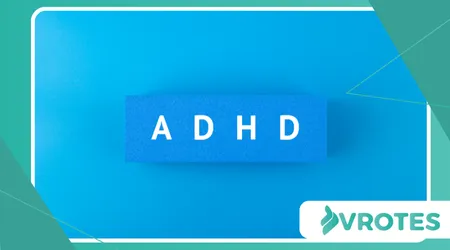The Overlap Between Perimenopause and ADHD Symptoms

Perimenopause and ADHD Symptoms. Perimenopause is the transitional phase leading to menopause, marked by fluctuating hormone levels.
Anúncios
Estrogen and progesterone, key players in this hormonal symphony, can dramatically impact brain function.
This is especially true for the prefrontal cortex, the brain’s command center for executive functions.
For individuals with ADHD, these hormonal shifts can feel like they’re flipping a switch on their already finely-tuned nervous system.
The familiar symptoms of inattention, hyperactivity, and impulsivity can become magnified and more difficult to manage. It’s a perfect storm of hormonal and neurological changes.
Anúncios
Think of it this way: imagine your brain as a carefully constructed bridge with a team of dedicated workers (neurotransmitters) keeping traffic flowing smoothly.
For someone with ADHD, this bridge already has some congestion, requiring careful management.
During perimenopause, a major storm (hormonal fluctuations) hits, causing the bridge to sway and some of the workers to become disoriented.
The erratic estrogen levels in perimenopause can disrupt the delicate balance of dopamine and norepinephrine, neurotransmitters crucial for focus and motivation.
For women with ADHD, who often have lower levels of these very same neurotransmitters, this is a significant issue.
This disruption can make it much harder to concentrate, organize tasks, and regulate emotions.
Unpacking the Symptom Duplication
The symptoms of perimenopause and ADHD can be remarkably similar, leading to misdiagnosis or confusion.
Fatigue, brain fog, mood swings, and sleep disturbances are common in both conditions. It’s easy to see how one might be mistaken for the other.
A woman in her late 40s, a successful professional who has managed her ADHD for years, might suddenly find herself unable to focus on a single task.
She misplaces her keys daily, forgets important appointments, and feels an overwhelming sense of mental exhaustion.
She attributes this to stress or aging, not realizing it’s the combined effect of perimenopause and ADHD symptoms.
Read more: The Truth About Black Cohosh: Benefits and Risks
This cognitive overlap is not just anecdotal; it’s rooted in neurobiology.
The hormonal changes of perimenopause can trigger a decline in cognitive function that mirrors the executive dysfunction seen in ADHD.
It’s a powerful combination that can undermine a woman’s sense of self and capabilities.
One study, for instance, showed a strong correlation between declining estrogen levels and a decrease in working memory.
This is a critical component of executive function and a key area of struggle for those with ADHD.
When this decline is superimposed on an existing neurological condition, the impact can be profound.

| Symptom Category | Common in Perimenopause | Common in ADHD | Overlap & Intensification |
| Cognitive | Brain Fog, Forgetfulness | Inattention, Disorganization | Executive Dysfunction Amplified |
| Emotional | Mood Swings, Irritability | Emotional Dysregulation | Heightened Emotional Volatility |
| Physical | Fatigue, Sleep Disturbances | Restlessness, Sleep Issues | Compounded Exhaustion |
When a Familiar Struggle Becomes Unmanageable
For many women with ADHD, perimenopause feels like a regression.
A woman who has developed coping mechanisms and strategies over decades might suddenly find them ineffective.
Her carefully curated systems for organization and time management may begin to crumble under the new pressures.
Check this out: The Role of Gut Health in Reducing Menopause Digestive Issues
Consider a mother who has successfully juggled a career and a family for years, thanks to her meticulously planned schedules.
As she enters perimenopause, she finds herself staring blankly at her calendar, unable to process the list of tasks.
The mental stamina she once relied on seems to have vanished. She feels like she’s back to square one, struggling with the basic demands of daily life.
This is not a sign of failure but a clear indication that a new approach is needed.
The strategies that worked during the more hormonally stable years may not be sufficient to address the complexities of perimenopause and ADHD symptoms combined.
It’s crucial to recognize this as a physiological change, not a personal shortcoming.
Instead of fighting against this new reality, women can work with healthcare providers to develop updated strategies.
This could include adjusting ADHD medication, exploring hormonal therapies, or adopting new lifestyle changes tailored to this life stage. The key is to address both sides of the coin.
This is not a moment to give up, but a time to re-evaluate and rebuild. It’s an opportunity to create a new, more sustainable framework for well-being.
The good news is that with the right support, women can regain a sense of control and clarity.
Seeking Solutions and Validation
Recognizing the complex interplay of perimenopause and ADHD symptoms is the first step toward finding relief.
A recent survey revealed that up to 70% of women with ADHD report a significant worsening of their symptoms during perimenopause.
This statistic highlights a widespread but often overlooked issue.
See how interesting: The Gut-Brain Connection: How Fermented Foods Influence Your Mood
Open communication with healthcare providers is vital. It’s essential to find a doctor who understands this unique overlap and is willing to explore all possible solutions.
This could involve a combination of medication management, cognitive-behavioral therapy, and hormone replacement therapy (HRT).
Remember, you are not alone in this struggle.
The increasing awareness of perimenopause and ADHD symptoms validates the experiences of countless women who have felt like they were losing their minds.
It’s not a personal failure, but a physiological challenge that requires a holistic and informed approach.
So, how can we navigate this turbulent phase without losing our footing?
The answer lies in awareness, advocacy, and a willingness to seek out specialized support. It’s a journey of understanding and self-compassion.
This isn’t about simply enduring; it’s about thriving through change. It’s about recognizing that this is a unique phase with unique needs.
By understanding the intricate connection between perimenopause and ADHD symptoms, women can finally get the right support.

Frequently Asked Questions
What is the difference between perimenopause and menopause?
Perimenopause is the transitional period leading up to menopause, which is defined as 12 consecutive months without a menstrual period.
Perimenopause can last for several years, while menopause is a single point in time.
Can perimenopause trigger ADHD symptoms for the first time?
While perimenopause can’t “cause” ADHD, the hormonal shifts can uncover or exacerbate underlying ADHD tendencies that were previously well-managed.
Some women may experience a sudden onset of symptoms that look and feel like ADHD.
Should I change my ADHD medication during perimenopause?
It’s essential to consult with your healthcare provider. Your medication may need to be adjusted or supplemented to account for the new hormonal influences on your brain chemistry.
Do not make any changes without medical supervision.
What treatments are available for this symptom overlap?
Treatments can include adjusting ADHD medication, hormone replacement therapy (HRT), lifestyle changes (like exercise and diet), and therapeutic interventions such as Cognitive Behavioral Therapy (CBT) to help manage the combined symptoms.
++ Menopausal difficulties increase in line with the severity of ADHD symptoms
